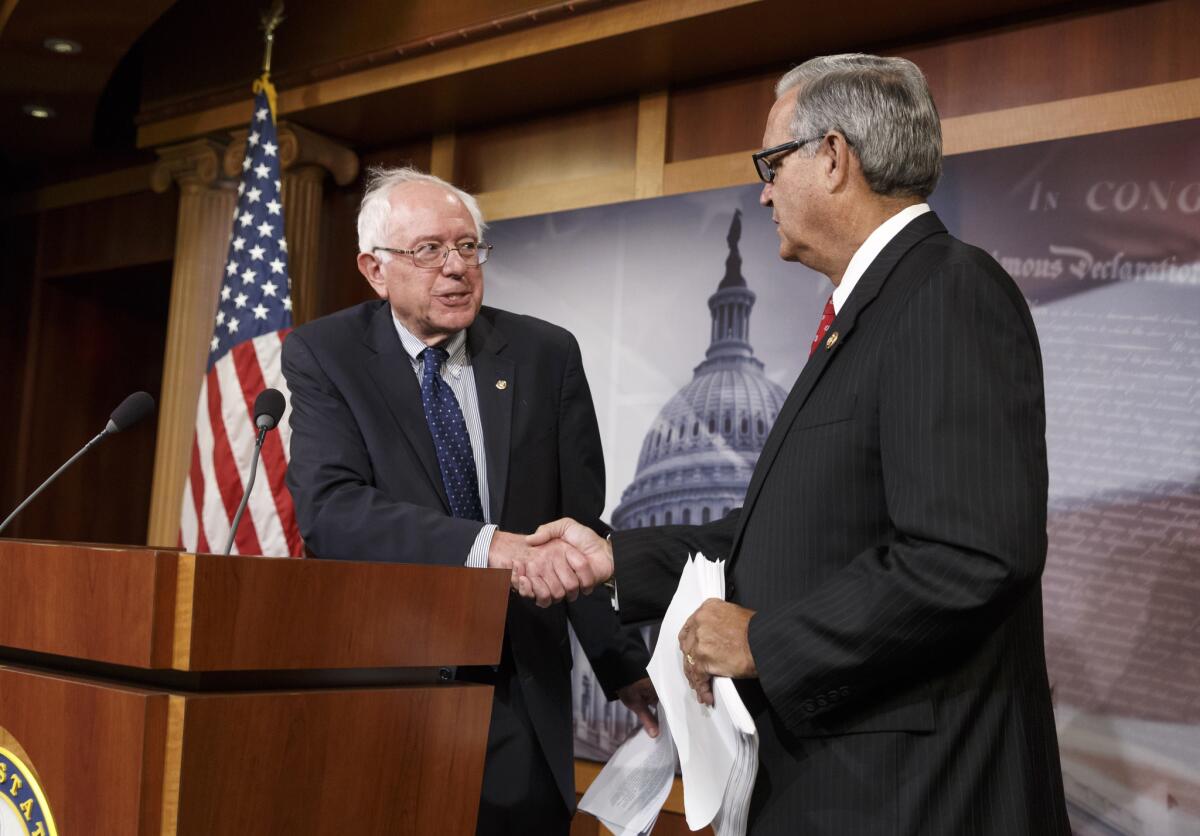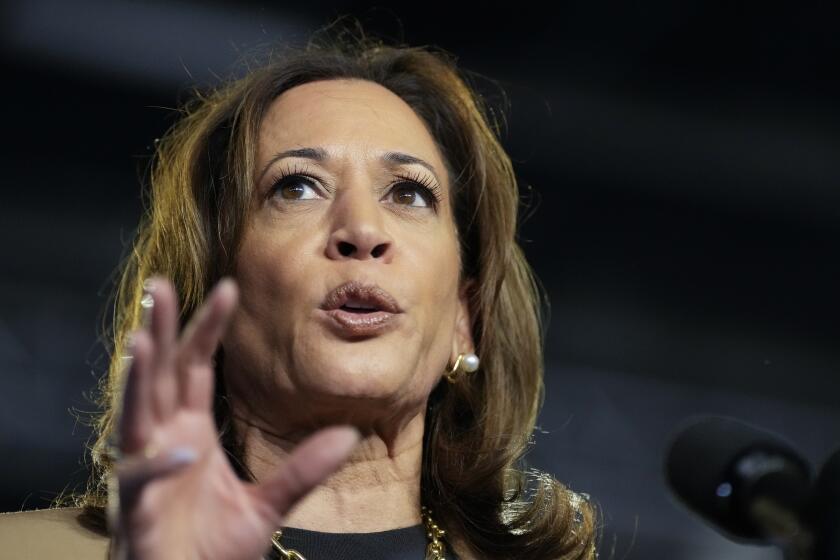Senate sends $16.3-billion Veterans Affairs reform bill to Obama

Reporting from Washington â Nearly four months after Veterans Affairs employees were exposed for allegedly falsifying records to cover up long wait times for patients, the Senate on Thursday night overwhelmingly approved a $16.3-billion compromise bill to overhaul the department.
The chamberâs 91-3 vote comes as Congress heads into a five-week recess. The House passed the joint conference committee legislation Wednesday. Now the measure awaits President Obamaâs signature.
âMy belief is that the cost of war, in terms of what it does to the men and women who fight our battles, is a lot greater than most Americans fully understand,â said Sen. Bernie Sanders (I-Vt.), the Senateâs chief negotiator. âIt is absolutely imperative we donât make veterans into political pawns.â
The deal includes $10 billion in emergency funds to pay private doctors to treat veterans who canât get a VA appointment within 14 days or those who live more than 40 miles from a VA facility. The remaining funds are allotted to build up the healthcare systemâs clinical staff and lease new clinics across the country.
The legislation also establishes an independent committee to review VA operations and act as a liaison with Congress.
The Congressional Budget Office estimated the reform legislation would increase the federal deficit by about $10 billion over the next 10 years.
Some of the five House Republicans who voted against the bill said Congress was throwing money at the problem and not addressing its cause.
âWe need structural changes, a purge of those who made this mess, and more choices for our veterans,â said Rep. Jack Kingston (R-Ga.).
In early April, amid reports of mismanagement in the VA system, Rep. Jeff Miller (R-Fla.) told the House Veterans Affairs Committee that a secret waiting list may have contributed to the deaths of dozens of veterans.
The wait lists, hidden from official records, concealed thousands of veterans who were forced to wait months to see a VA doctor, even though the healthcare system has a 30-day goal when scheduling new appointments.
By the end of May, VA Secretary Eric K. Shinseki had resigned, and investigations into the vast agency were in full swing.
Both the House and Senate overwhelmingly approved separate versions of a VA reform bill in early June, but legislators clashed over the costs. In previous versions, the House would have spent $44 billion while the Senate authorized $35 billion.
The scaled-down compromise parallels the $17.6 billion that Acting VA Secretary Sloan Gibson said recently that the agency needed over the next three years to begin reform.
The Senate on Tuesday confirmed Robert McDonald, former chief executive of Procter & Gamble, as Shinsekiâs replacement.
The reform measure grants McDonald broad authority to fire or demote senior executives who are accused of mismanagement and dishonesty.
House Minority Whip Steny Hoyer (D-Md.) supported the bill, but said the firing provision undermines civil service protections that have existed for decades.
Senate Republicans who opposed the bill echoed their House counterparts. Sen. Jeff Sessions (R-Ala.) offered a âbetter choiceâ to his fellow lawmakers Thursday: âLetâs wait a bit,â he said, and see how effective McDonald is at the top of the agency, letting the new secretary review the VA and offer his input.
Rep. Dan Benishek (R-Mich.), who worked as a VA doctor for 20 years, said the âtrue testâ would come next.
âOur bill is not perfect, and the problems at the VA will not be solved overnight,â he said. âBut this is our best chance.â
More to Read
Sign up for Essential California
The most important California stories and recommendations in your inbox every morning.
You may occasionally receive promotional content from the Los Angeles Times.










